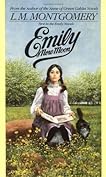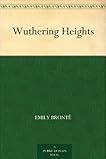 ...Mr. Canning complained that the nightmares Mr. Norrell had sent the Emperor (which chiefly concerned a captain of Dragoons hiding in Buonaparte’s wardrobe) would scarcely frighten his children’s governess let alone the conqueror of half of Europe. For a while he had tried to persuade the other Ministers that they should commission Mr Beckford, Mr Lewis and Mrs Radcliffe to create dreams of vivid horror that Mr Norrell could then pop into Buonaparte’s head. But the other Ministers considered that to employ a magician was one thing, novelists were quite another and they would not stoop to it.
Author:
...Mr. Canning complained that the nightmares Mr. Norrell had sent the Emperor (which chiefly concerned a captain of Dragoons hiding in Buonaparte’s wardrobe) would scarcely frighten his children’s governess let alone the conqueror of half of Europe. For a while he had tried to persuade the other Ministers that they should commission Mr Beckford, Mr Lewis and Mrs Radcliffe to create dreams of vivid horror that Mr Norrell could then pop into Buonaparte’s head. But the other Ministers considered that to employ a magician was one thing, novelists were quite another and they would not stoop to it.
Author: Susanna Clarke
Synopsis: Mr. Norrell is the first practical magician in England in centuries, and he’s ready to kick the theoretical magicians out on their ears. Jonathan Strange is the second practical magician, trained by Mr. Norrell, but he wants all England to understand all about magic. Mr. Norrell has little use for talk of the Raven King, a magician regent of an earlier age who is thought to still exist somewhere. Jonathan Strange believes the Raven King ought to be studied and perhaps convinced to return to England. With such opposite natures and goals, the two men cannot agree, but they have no one else who can truly share their great passion: magic.
Also, there’s a murderous fairy.
Notes: First, hilarity.
Working over the course of ten years, Clarke wrote this novel—which is over eight hundred pages long and contains a couple hundred footnotes—entirely in a sort of Edwardian drawing-room English, slightly more gentlemanly in flavor than Austen perhaps, but with a similarly satirical style. The jokes, which include sly jibes against novels, don’t leap off the page and attempt to flag your attention; they lie down in the text and disappear, and you catch them only if you’re paying attention. I suspect that a second read through would turn up far more wit than even the first did.
The difficulty, speaking right up front, is in achieving that second read through. It might seem entirely ridiculous for someone who read and loved something like nine or ten thousand pages of
Wheel of Time to complain that an 800-page novel is too long, but if I hadn’t caught the flu and needed something reasonably non-demanding to do with two days, I might never have finished it.
Here’s the deal: the first couple of chapters fascinated me. Mr. Norrell, in the character of mystery, was actually interesting. Once we followed him to London and watched him shuffle through various political affairs with the dull and loathsome Drawlight and Lascelles planning his every move, he lost—for me—all interest and much sympathy as a character. I don’t read stories for the sake of conflict and resolution; I read them because the characters matter to me, and for the whole first part of the book—it’s in three parts—the only character I strongly pulled for was John Segundus.
But as I say, I was sick and bored. So I pushed through. As soon as Jonathan Strange came onstage, the story got my attention.
Then the “gentleman with the thistle-down hair” began to involve himself, and the story got creepy. The enchantments he put over people and his eerie lack of sanity kept me fighting chills down my spine for several hundred pages. I should mention that Clarke’s portrayal of humans as weak in magic but strong in reason, and fairies as the exact opposite, makes for an interesting study.
Clarke’s portrayal of magic, while we’re talking such things, was anything but that of
Harry Potter. Rowling sets up the wielding of magic as morally neutral, and she shows its use as being subject to the moral law. Never in the Potter series is any kind of spiritual invocation used. Clarke, by contrast, includes the following in a footnote: “Magicians are chiefly interested in the usefulness of… supernatural beings; they wish to know under what circumstances and by what means angels, demons and fairies can be brought to lend their aid in magical practices. For their purposes it is almost irrelevant that the first class of beings is divinely good, the second infernally wicked and the third morally suspect.” This she compares to priests, who she says “are scarcely interested in anything else.” (Page 521)
This is not morally neutral, and you can make of it what you will in the context of the book. I will say it made me watchful, especially considering the grotesque aspect of certain spells. Neither demons nor angels were invoked by Strange or Norrell, but the fairy was, and the fairy was evil. And crazy. Did I mention that he was creepy?
Beyond all that, the mythology is intensely and beautifully developed, the voice never misses a note, and the themes of the Raven King and the nameless slave and the restoration of magic to England are all very thought-provoking. It’s a dark, shadowy sort of a story, full of unexpected turns, old-fashioned British humor, and a very long progression toward an unlikely but excellent friendship—and that last, more than anything, is the point of the tale.
Recommendation: Read it on a rainy day; it’s especially handy if you’re sick. But if you dream about frightening things in books, as I do, don’t read it before bed.


 ...Mr. Canning complained that the nightmares Mr. Norrell had sent the Emperor (which chiefly concerned a captain of Dragoons hiding in Buonaparte’s wardrobe) would scarcely frighten his children’s governess let alone the conqueror of half of Europe. For a while he had tried to persuade the other Ministers that they should commission Mr Beckford, Mr Lewis and Mrs Radcliffe to create dreams of vivid horror that Mr Norrell could then pop into Buonaparte’s head. But the other Ministers considered that to employ a magician was one thing, novelists were quite another and they would not stoop to it.
...Mr. Canning complained that the nightmares Mr. Norrell had sent the Emperor (which chiefly concerned a captain of Dragoons hiding in Buonaparte’s wardrobe) would scarcely frighten his children’s governess let alone the conqueror of half of Europe. For a while he had tried to persuade the other Ministers that they should commission Mr Beckford, Mr Lewis and Mrs Radcliffe to create dreams of vivid horror that Mr Norrell could then pop into Buonaparte’s head. But the other Ministers considered that to employ a magician was one thing, novelists were quite another and they would not stoop to it.
 Auralia lay still as death, like a discarded doll, in a burgundy tangle of rushes and spineweed on the bank of a bend in the River Throanscall, where she was discovered by an old man who did not know her name.
Auralia lay still as death, like a discarded doll, in a burgundy tangle of rushes and spineweed on the bank of a bend in the River Throanscall, where she was discovered by an old man who did not know her name.
 “Wow,” Thalia muttered. “Apollo is hot.”
“Wow,” Thalia muttered. “Apollo is hot.” “Poor Ilse!” said Aunt Laura, sighing.
“Poor Ilse!” said Aunt Laura, sighing.


 Ma felt [Rin’s] forehead, her cheeks, made her stick out her tongue, prodded her belly, listened to her elbows for creaks, pulled down her earflaps to look for rash. “Seem fine. You not feeling fine?”
Ma felt [Rin’s] forehead, her cheeks, made her stick out her tongue, prodded her belly, listened to her elbows for creaks, pulled down her earflaps to look for rash. “Seem fine. You not feeling fine?”

 “Have you ever heard what some philosophers say--that men were all animals once?”
“Have you ever heard what some philosophers say--that men were all animals once?”




 What were the use of my creation, if I were entirely contained here? My great miseries in this world have been Heathcliff’s miseries, and I watched and felt each from the beginning: my great thought in living is himself. If all else perished, and he remained, I should still continue to be; and if all else remained, and he were annihilated, the universe would turn to a mighty stranger: I should not seem a part of it.—My love for Linton is like the foliage in the woods: time will change it, I’m well aware, as winter changes the trees. My love for Heathcliff resembles the eternal rocks beneath: a source of little visible delight, but necessary. Nelly, I am Heathcliff! He’s always, always in my mind: not as a pleasure, any more than I am always a pleasure to myself, but as my own being. So don’t talk of our separation again: it is impracticable; and—’
What were the use of my creation, if I were entirely contained here? My great miseries in this world have been Heathcliff’s miseries, and I watched and felt each from the beginning: my great thought in living is himself. If all else perished, and he remained, I should still continue to be; and if all else remained, and he were annihilated, the universe would turn to a mighty stranger: I should not seem a part of it.—My love for Linton is like the foliage in the woods: time will change it, I’m well aware, as winter changes the trees. My love for Heathcliff resembles the eternal rocks beneath: a source of little visible delight, but necessary. Nelly, I am Heathcliff! He’s always, always in my mind: not as a pleasure, any more than I am always a pleasure to myself, but as my own being. So don’t talk of our separation again: it is impracticable; and—’